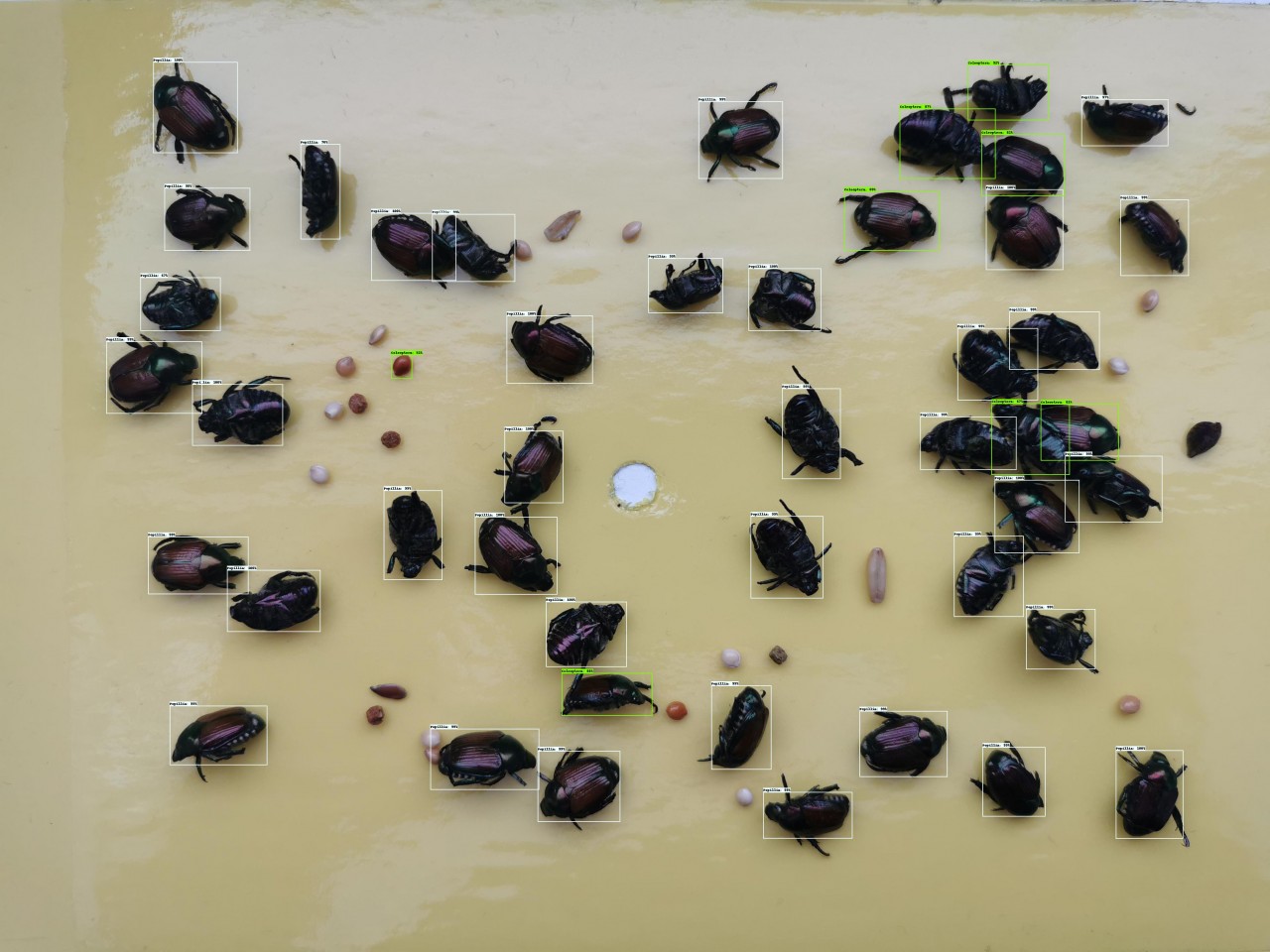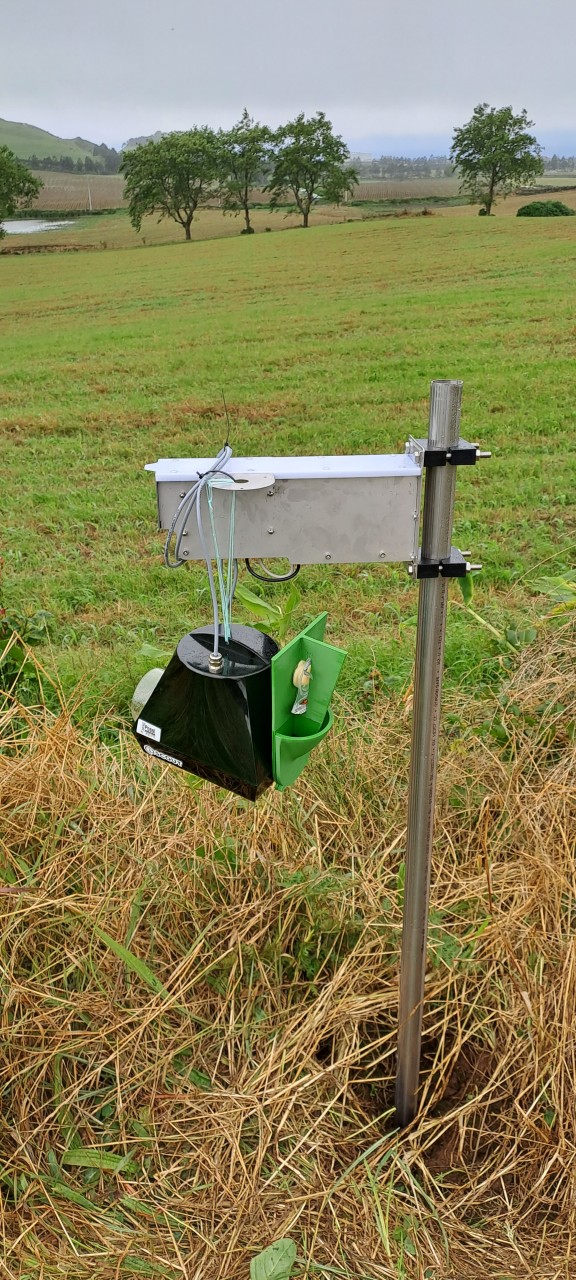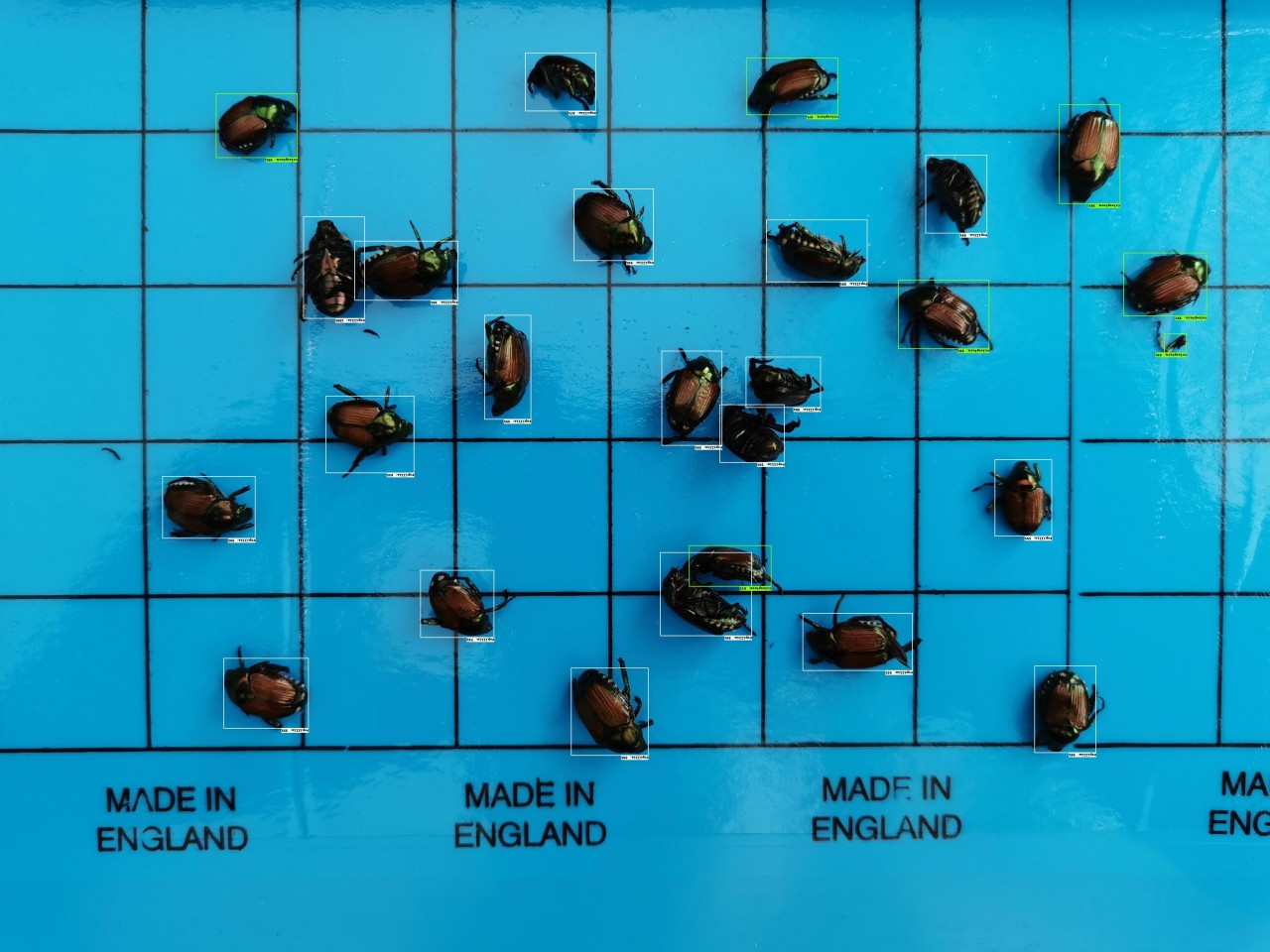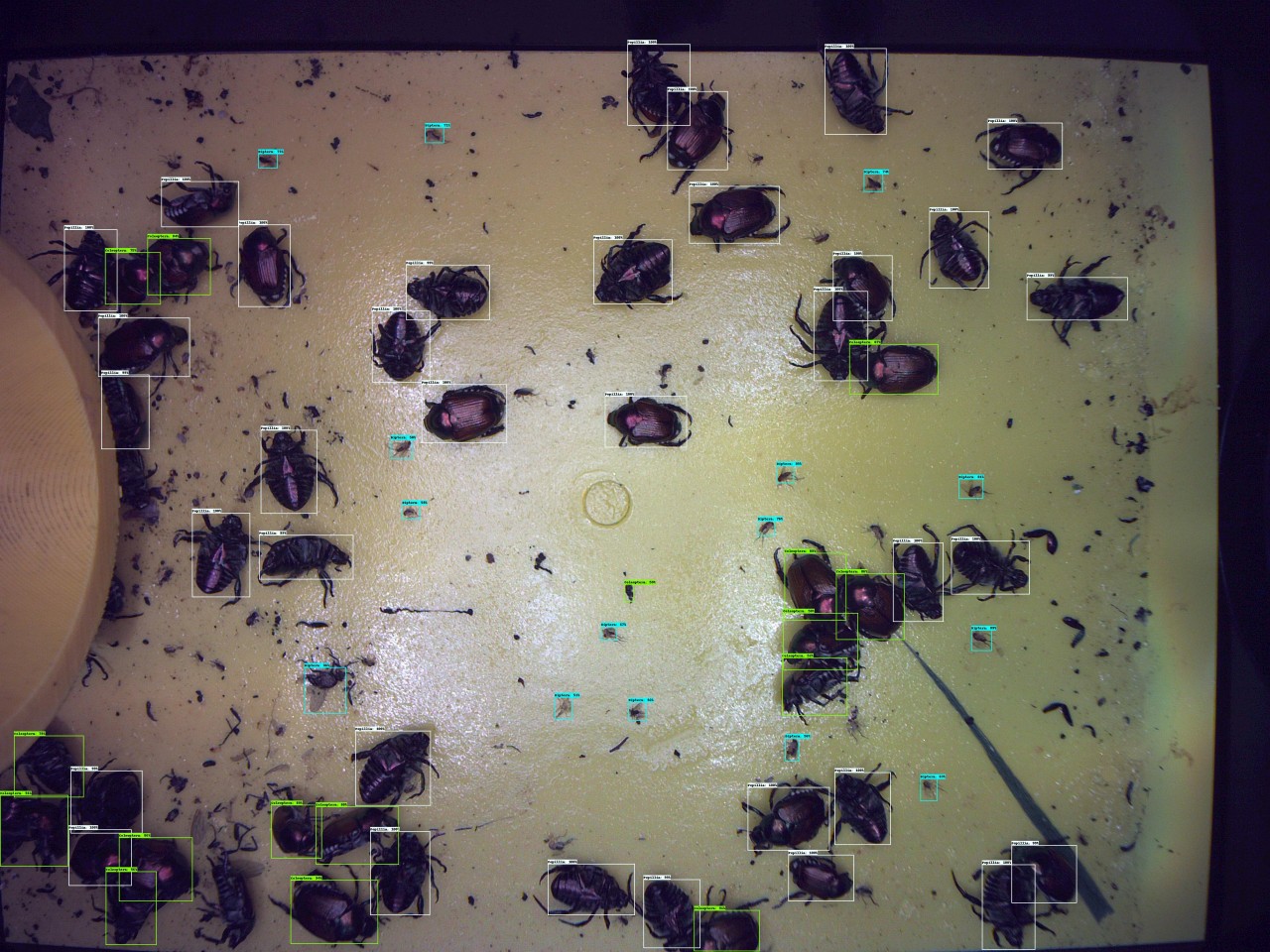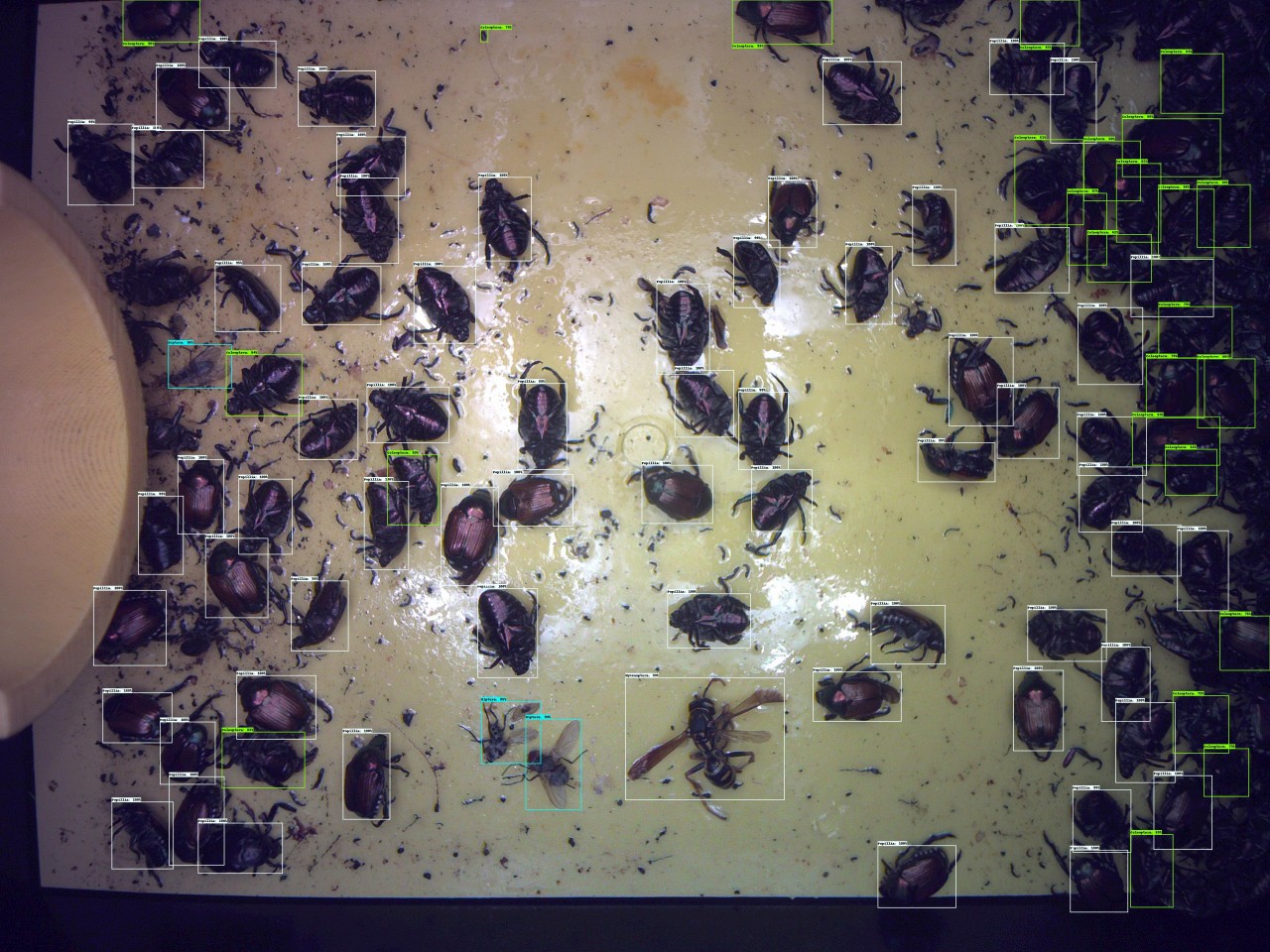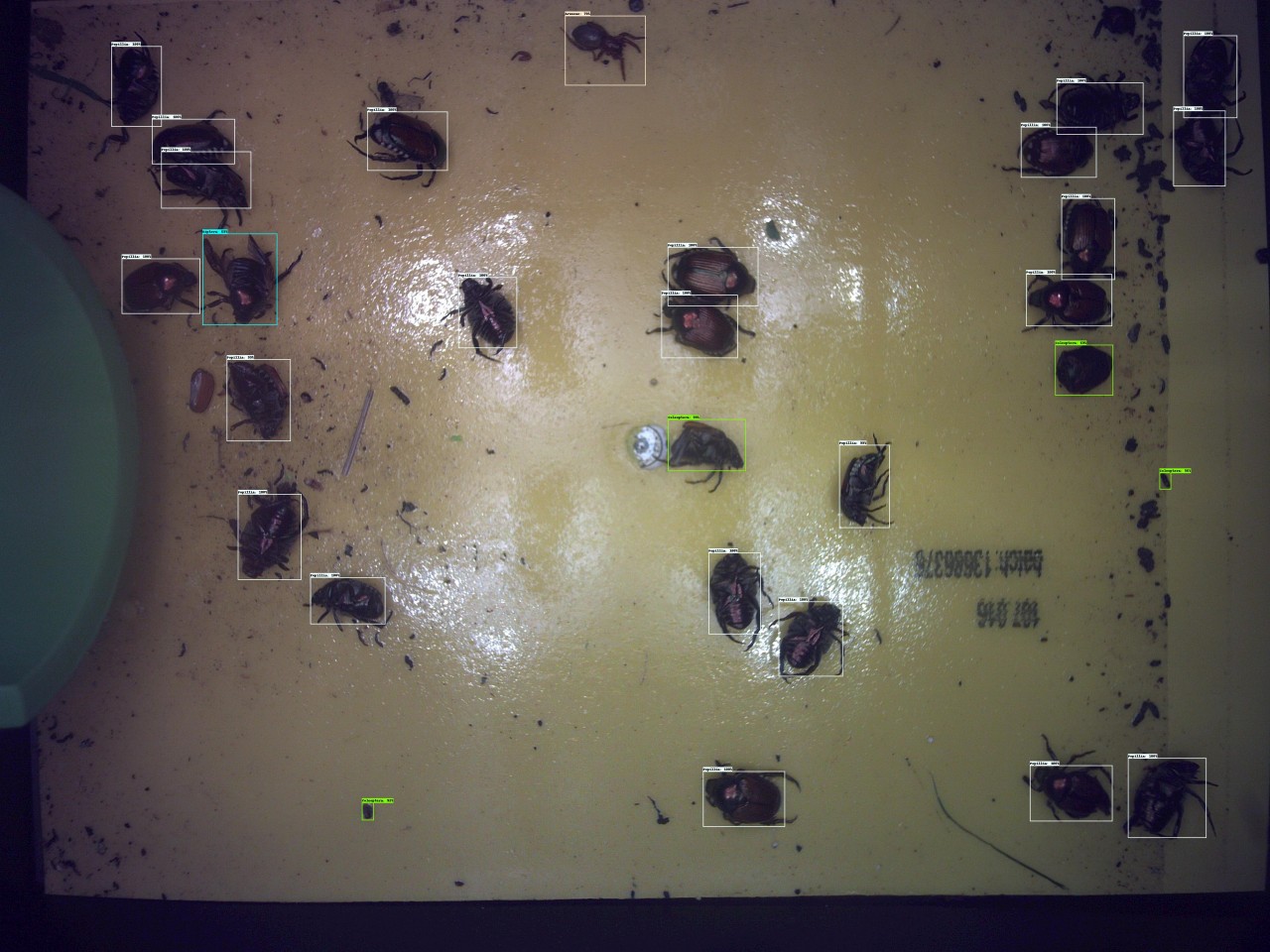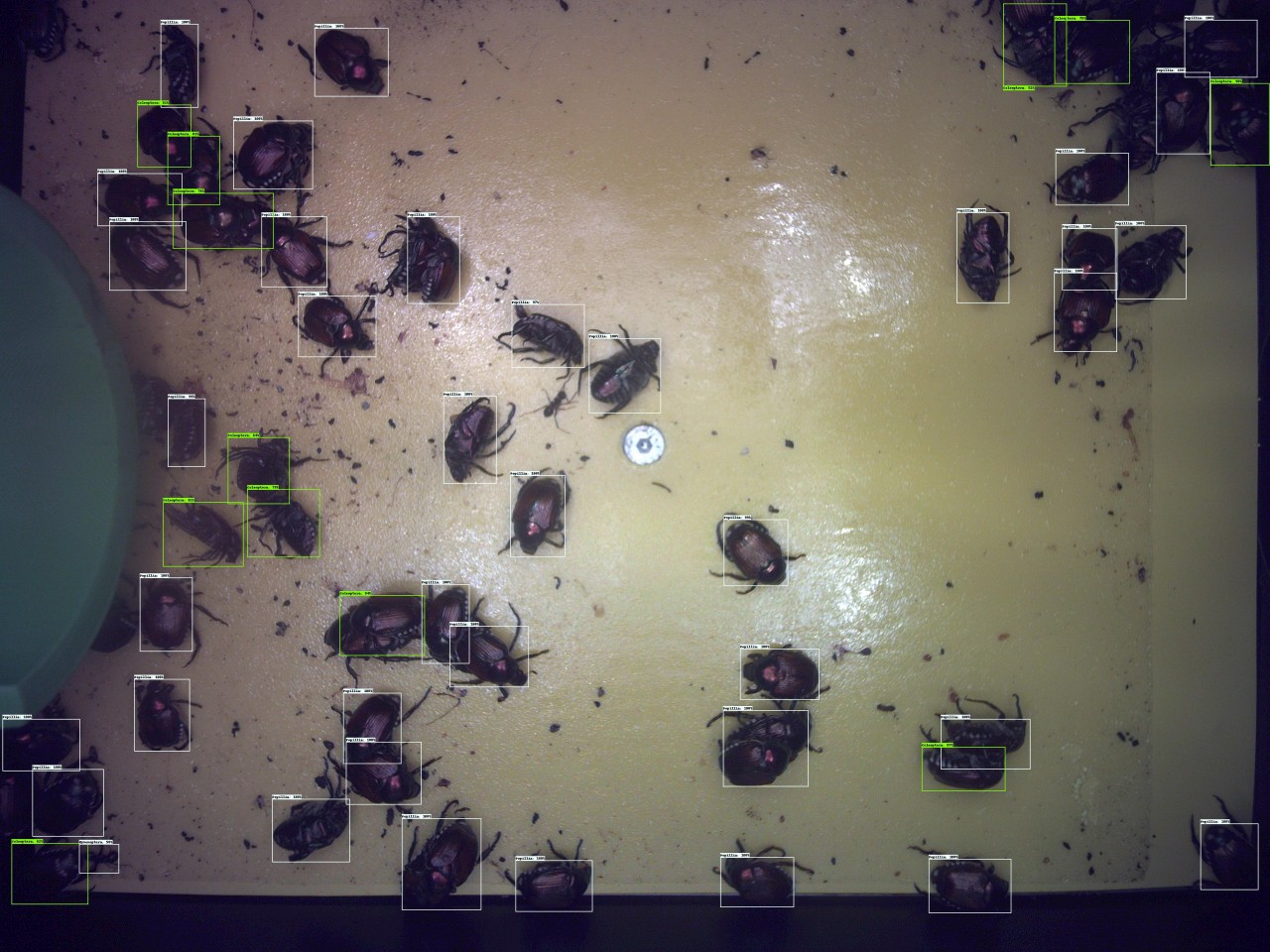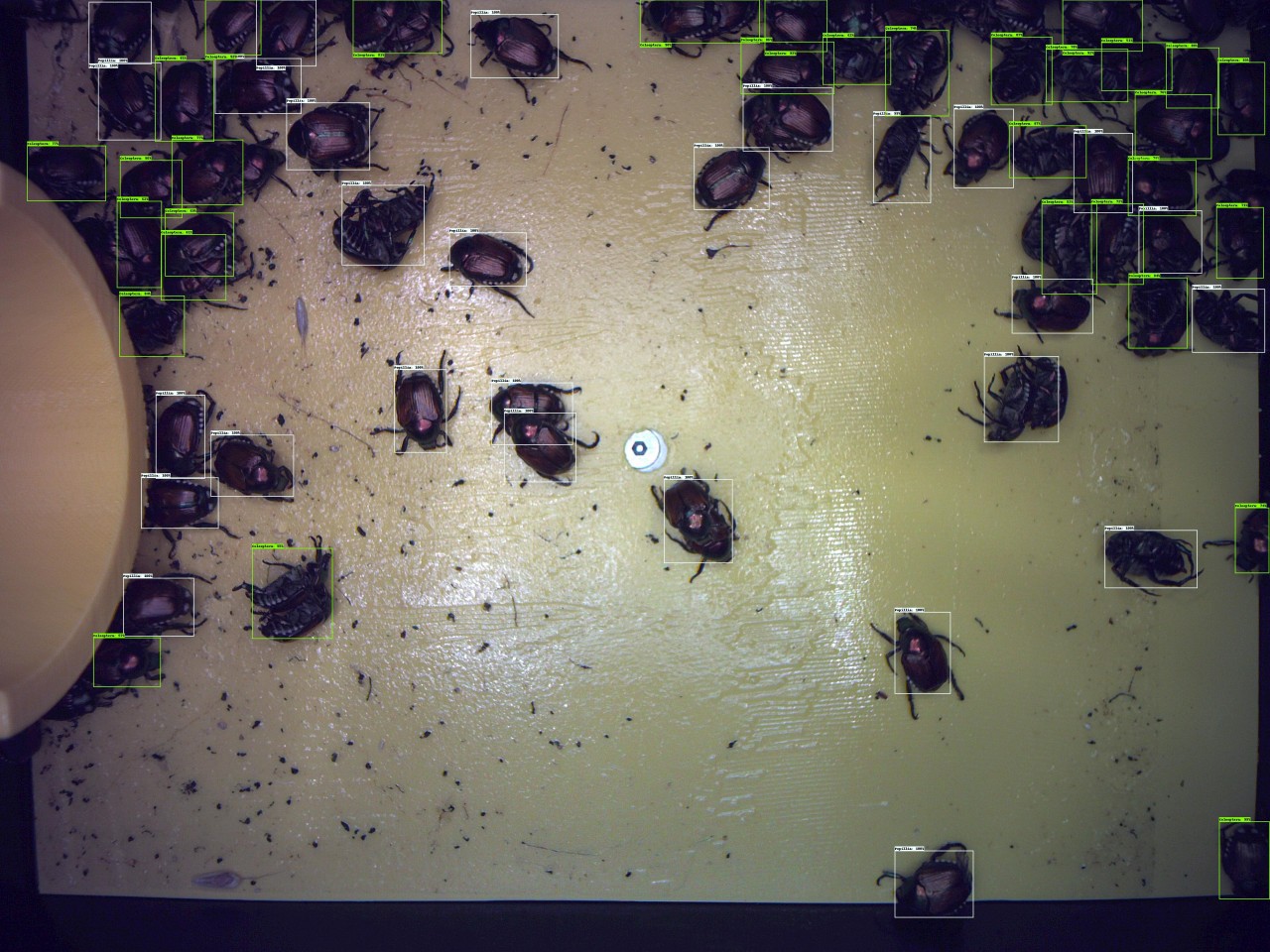PESSL INSTRUMENTS GmbH
Pessl Instruments GmbH has been producing reliable measuring instruments for 38 years and has developed various devices for the measurement and monitoring of different agricultural parameters, being one of the leading IoT providers for agriculture offering innovative and cost-effective solutions for more efficient farm management. Participating in the IPM-Popillia project gives PESSL a chance to put into the farmer's disposal all its expertise on sustainable agriculture and fulfill its mission of offering high-value, customized, cost-effective solutions while contributing to global environmental protection.
ABOUT THE PROJECT
The IPM-Popillia project, funded by @EU Horizon 2020 research and innovation programme, started in September 2020. Our expert team has been working on a monitoring device with the aim of P. japonica detection and monitoring.
The insect traps our team evolved include electronic devices with 10 MP lenses on the top of the housing and are self-sufficient through a battery and a solar panel. The traps are equipped with sensors collecting climatic data, like temperature and relative humidity which will be used to get more detailed insight into the flight behavior of P. japonica. In addition, the trap system is equipped with a lure, attracting the target species to enter the trap system. After entering the trap, insects get fixed and photographed. The photos serve as a base for the development of an automatic detection tool specifically for P. japonica. Deep learning systems using artificial neural networks are training the system to detect and separate the targeted insect from non-targets, check more info on our previous blog post.
The prototype traps produced by PESSL were planned to be installed in high-risk areas during the first introduction of P. japonica, to evaluate the innovative monitoring tool under field conditions. In addition to the remote-controlled evaluation, catches of these traps are planned to be evaluated also manually by the experts. The results of these monitoring efforts will be then compared with automated monitoring results and will provide feedback for optimizing the detection software.
PROGRESS OVER THE PAST MONTHS
Installations and Green Add-on
PESSL reached the goal of having 18 prototype traps produced, delivered, and installed in 5 different countries in Europe: France, Italy, Switzerland, the Azores, and Austria.
Our aim was to produce a trap that can be used for monitoring P. japonica in low to middle-infested and in areas with a high risk of appearance in Europe.
By following the recommendations from the scientific board present at our last Consortium Meeting (Oct.2022), the special add-on was accordingly changed from yellow to green. This also makes it possible to test the behavior of other non-target insects (bees) and decrease their presence in the traps.
Finally, 18 units of the new green add-on have been produced and delivered to the partners during the spring and summer seasons of 2023.
The photo shows the installation of the iSCOUT® device in the Azores already with the new green add-on.
PESSL would like to once again thank all our partners who supported the installations for season 2023:
- Nelson Simões, Màrio Brum Teixeira, and their team in the Azores,
- Giovanni Bosio, Michelangelo Regis, and their teams in Piemonte,
- Luca Jelmini & Michela Meier and their team in Ticino, as well as
- Nathalie Gourbeau from Service Régional de l'Alimentation (SRAL) in Strasbourg
Automatic recognition of P. japonica
Collecting pictures of P. japonica in glue boards and traps for labeling was also part of the activities planned for the PESSL Team. All those pictures are the base of object recognition and of the machine learning approach.
Following this procedure, PESSL has made progress in the automatic recognition of Popillia japonica. The detector has been updated to recognize Popillia on the genus level. This brings us one step closer to achieving species-level recognition.
The photo below (blue) and the cover photo (yellow) show 2 manually arranged glue boards prepared to further train the system on the recognition of P. japonica.
Detection system
We are happy to announce that a new detection system was released in late July 2023.
In the images below, some photos are shown. The localization has become more precise and the genus classification of P. japonica as Popillia is more stable (more insects were recognized and fewer mistakes in the order - Coleoptera - and genus - Popillia - classification were performed).
WHAT'S PLANNED FOR THE FUTURE?
- Labeling of photos collected in 2023 and training the AI for species level.
- Getting information about the mass production of the specific green add-on.
ABOUT THE AUTHORS:
M.Sc. Junia Rojic, Project support officer
At PESSL, I am responsible for all the administrative tasks related to projects, including among others proposals, reports, deliverables, time schedules, meetings, minutes, and budget control. I studied Industrial Engineering at the Federal University of São Carlos, Brazil, recognized in Austria as a Master's degree in Materials Science. With more than 13 years of experience in Project Management, including some years in Brazil working at R&D and IT companies, I am delighted to be part of a European Project, with many important stakeholders, and most importantly, supporting agriculture and food production in the 21st century. In my free time, I do sports, like volleyball and indoor football, but also enjoy spending some time reading and in nature hiking.
Eva Munda, Entomologist assistant
My entomology career started when I was about five years old and breeding mosquitoes in the living room. My parents were not amused, but I learned a lot about the life cycle of a mosquito. It was only a natural decision for me to study ecology and nature conservation at the Faculty of Natural Sciences and Mathematics in Maribor. I started to work for Pessl Instruments in June 2021 as an Entomological assistant, with the main focus on insect identification. In my free time, I like to cook, paint, and spend some time in nature hiking, mushrooming, or birdwatching.
Damir Najvirt, Machine learning engineer
I studied physics, specializing in stochastic processes and their role in the development of financial markets at the Faculty of Natural Sciences and Mathematics in Maribor, Slovenia. I have been working for PESSL since 2016, where I developed image processing solutions for our camera products and automated systems for fruit and insect recognition. I am responsible for designing, evaluating, and enhancing our machine learning stack. I am especially passionate about the transformation of data into valuable information that, in turn, guides farmers all over the world.
Minkyeong Kim, Project assistant (intern)
As a project assistant at PESSL, I provide administrative support for both internally and externally funded projects, including dissemination, communication activities and preparation of documents and reports. I graduated from Sookmyung Women's University in Seoul, Korea with a degree in Business Administration and Economics. With a diverse experience in Finance and HR departments, my communication skills are adaptable and borderless. I am passionate about the agricultural field and its potential and I'm thrilled to be part of the team PESSL. In my free time, I love to explore new cultures through travel and photography.
By accepting you will be accessing a service provided by a third-party external to https://www.popillia.eu/




